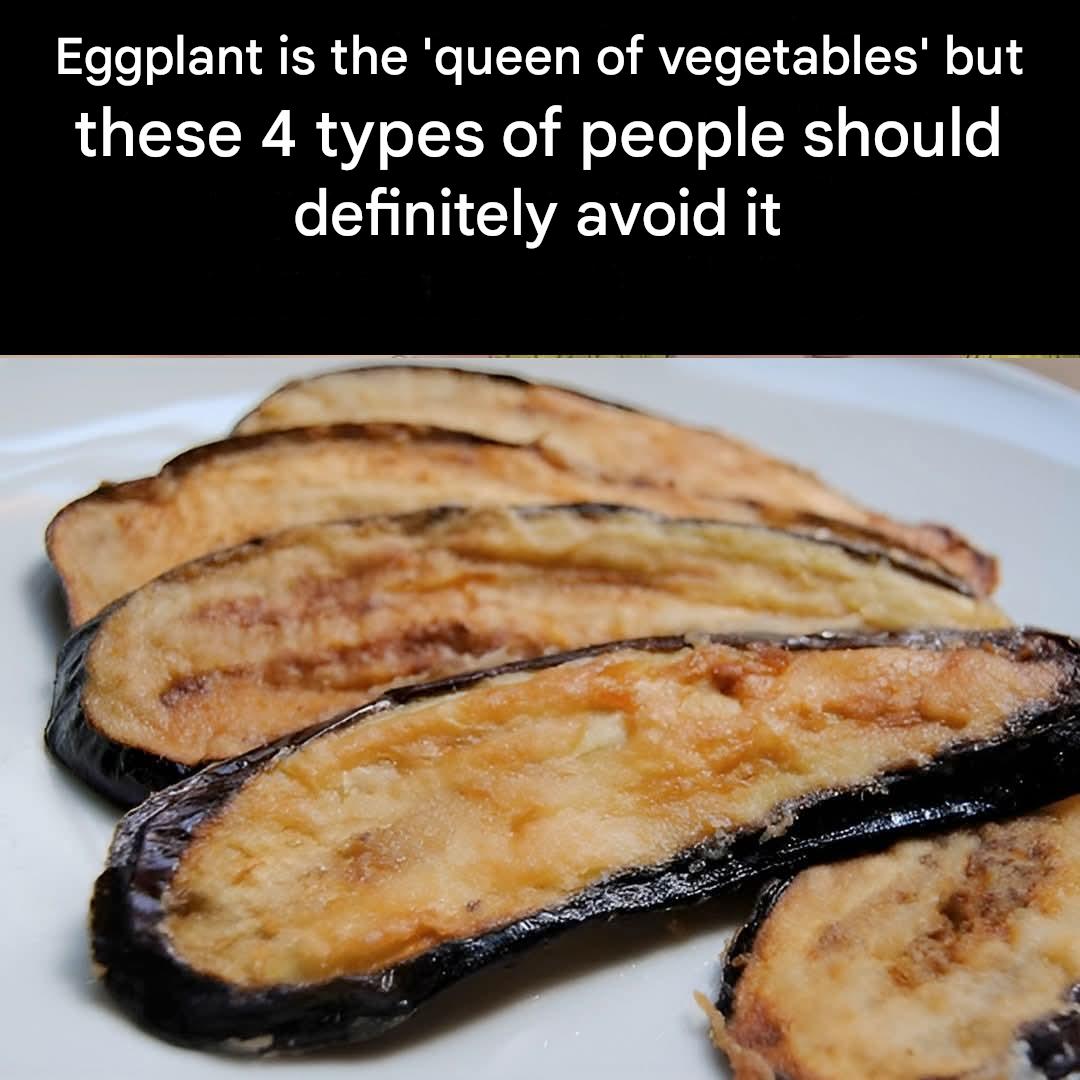ADVERTISEMENT
Eggplant is the “Vegetable Queen” But Not Everyone Can Eat It: Here’s Why
Eggplant, also known as aubergine in many parts of the world, is often hailed as the “vegetable queen” due to its versatility, rich texture, and vibrant color. From savory curries and hearty stews to grilled slices and Mediterranean dips like baba ganoush, eggplant has earned its place in kitchens around the globe. It’s no wonder why many consider it a staple in vegetarian and vegan dishes, as it can effortlessly take center stage in a wide variety of meals.
However, despite its crown as the “vegetable queen,” eggplant is not for everyone. While it’s packed with nutrients and offers numerous health benefits, some individuals may find it difficult or even impossible to enjoy this beloved vegetable. Whether due to allergies, sensitivities, or specific health conditions, there are several reasons why certain people might need to avoid eggplant.
In this article, we explore the various factors that could prevent some people from indulging in this nutrient-packed vegetable and offer alternatives for those who need them.
1. Nightshade Sensitivity and Allergies
One of the primary reasons people avoid eggplant is due to its classification as a nightshade vegetable. Nightshades are a group of plants in the Solanaceae family that includes tomatoes, potatoes, peppers, and eggplant. While nightshades are generally safe and healthy for most people, they contain certain compounds—alkaloids—that can trigger adverse reactions in sensitive individuals.
For those with nightshade sensitivity or an allergy to nightshades, consuming eggplant can lead to a variety of unpleasant symptoms, including:
- Joint pain and inflammation
- Digestive issues such as bloating, gas, or indigestion
- Skin rashes or irritation
- Mouth sores or discomfort
People with autoimmune conditions like rheumatoid arthritis or irritable bowel syndrome (IBS) may be more prone to these reactions, as nightshades can sometimes exacerbate symptoms related to these conditions.
2. Solanine Content
Eggplant contains a natural toxin called solanine, which is a glycoalkaloid compound found in varying amounts across the nightshade family. Solanine is typically present in higher concentrations in the leaves, stems, and unripe fruit of the eggplant. While the solanine content in ripe eggplants is low and generally safe to eat in moderation, some individuals might be more sensitive to even trace amounts of solanine.
For those sensitive to solanine, symptoms can include:
- Headaches
- Nausea or vomiting
- Stomach cramps
- Dizziness
If you’re sensitive to solanine or have a history of solanine poisoning (often linked to consuming large quantities of raw or green parts of nightshade vegetables), it’s a good idea to limit or avoid eggplant altogether.
3. Oxalates and Kidney Health
Eggplant, like many other vegetables, contains oxalates, which are naturally occurring compounds that can contribute to the formation of kidney stones in susceptible individuals. Oxalates can bind with calcium in the body, forming calcium oxalate crystals, which may lead to the development of kidney stones.
People who are prone to kidney stones or those who have been advised by a healthcare professional to follow a low-oxalate diet may need t
